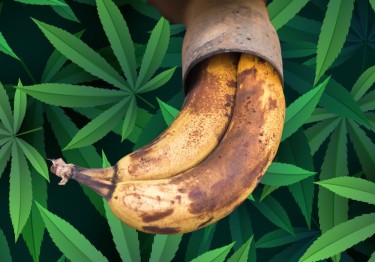Cannabis News
Patient Zero for Untreatable Depression Begins Groundbreaking Psychedelics Therapy
Published
8 months agoon
By
admin

In a phase 2b clinical trial, Beckley Psytech has started treating the first subject for BPL-003, an intranasal synthetic formulation of the psychedelic chemical 5-MeO-DMT intended for patients with treatment-resistant depression.
With FDA clearance for investigational new medication status in February, this groundbreaking research represents the biggest controlled examination into the potential of 5-MeO-DMT, involving 40 locations throughout Australia, Europe, and the US.
The trial, employing a randomized, quadruple-masked design, seeks to identify optimal dosages of BPL-003, complemented by psychological support, in 225 individuals grappling with moderate to severe treatment-resistant depression, compared to a placebo group.
Efficacy will be gauged using the Montgomery-Asberg Depression Rating Scale at various intervals throughout the trial, with all participants receiving psychological support before, during, and after dosing. An open-label extension is slated for select sites eight weeks post-initial dosing to evaluate sustained effects following a second dose.
Anticipated findings from this phase 2b endeavor, projected by late 2024, will augment insights gleaned from the ongoing phase 2a exploration of BPL-003, as highlighted by the company.
Cosmo Feilding Mellen, CEO of Beckley Psytech, expressed confidence in the compound, citing promising safety and pharmacokinetic data. He emphasized its capacity to induce brief yet profound subjective experiences correlating with therapeutic benefits, underscoring the company’s eagerness to advance BPL-003 through the clinical development pipeline.
Unprecedented Research Scope
An important turning point in the field of psychedelic research, especially in the area of mental health therapy, was reached with the start of Beckley Psytech’s phase 2b clinical experiment. The large-scale nature of this experiment highlights an important development in our knowledge of the therapeutic potential of psychedelic substances, with a particular emphasis on 5-MeO-DMT for patients suffering from depression that does not respond to conventional therapy. This experiment, which spans 40 sites throughout Australia, Europe, and the US, is the biggest controlled investigation into the possible effectiveness of 5-MeO-DMT, in contrast to earlier research. This wide outreach guarantees a varied pool of participants and improves the trial’s outcomes dependability and generalizability.
A rising awareness among scientists of the need for novel strategies to tackle the widespread problems associated with treatment-resistant depression is reflected in the decision to launch such an extensive research project. Researchers want to increase the number of therapy choices available for those who have not reacted well to traditional medications by investigating the therapeutic benefits of 5-MeO-DMT in a rigorous clinical environment. The trial’s multi-site design also makes it easier for clinicians and researchers in various areas to collaborate, which promotes a group effort to further our understanding of psychedelic-assisted treatment.
The size of this phase 2b experiment not only emphasizes the significance of its findings, but also demonstrates Beckley Psytech’s dedication to pushing the limits of psychedelic research. Through strategic alliances and diligent preparation, the firm has proved its commitment to performing high-quality clinical studies that meet rigorous scientific criteria while investigating novel treatment approaches. This innovative method not only aids the area of mental health treatment, but also helps to de-stigmatize psychedelics by demonstrating their ability to treat significant psychiatric illnesses safely and responsibly.
The experiment is expected to yield valuable insights that might influence future research, clinical recommendations, and regulatory choices related to the use of psychedelic substances in mental health therapy. This is because the trial is expected to proceed and data will accrue. Psychedelic-assisted therapy is being promoted as a possible therapeutic option for the intricate problems associated with treatment-resistant depression, thanks to the combined efforts of researchers, physicians, and study participants.
Trial Design and Objectives
BPL-003’s phase 2b clinical trial has been carefully designed to assess the drug’s potential as a therapy for people with depression who are not responding to conventional treatments. The experiment uses a quadruple-masked, randomized design to reduce biases and guarantee the validity and dependability of the results. This methodological rigor bolsters the foundation for well-informed decision-making on developing BPL-003 and increases the legitimacy of the study’s findings.
Central to the trial’s objectives is the identification of optimal dosages of BPL-003 that can effectively alleviate symptoms of moderate to severe treatment-resistant depression. By employing a range of doses and comparing them against a placebo group, researchers seek to discern the therapeutic window within which BPL-003 demonstrates the greatest efficacy while minimizing adverse effects. This dose-finding aspect of the trial is crucial for informing subsequent clinical studies and eventual therapeutic use.
The experiment incorporates psychological support as an additional therapeutic component in addition to dose optimization. All patients get thorough psychological care before, during, and following medication since it is acknowledged that depression is a complex condition with psychosocial components that may influence treatment outcomes. To promote complete healing and recovery, this holistic approach emphasizes the need to address not only the biology but also the psychological and emotional elements of depression.
Furthermore, the trial’s design includes strong metrics for measuring effectiveness, particularly using the Montgomery-Asberg Depression Rating Scale at several points throughout the research. This validated method enables researchers to systematically assess changes in depression symptoms and track the therapeutic benefits of BPL-003 over time. The trial uses standardized evaluation techniques to improve the consistency and comparability of outcomes across multiple research sites, increasing the reliability and generalizability of the findings.
Evaluation Methods and Milestones
A wide range of evaluation techniques and milestones are included in the phase 2b clinical study to assess BPL-003’s effectiveness in treating depression that is resistant to therapy. The Montgomery-Asberg Depression Rating Scale, a reliable instrument for gauging depression symptoms and treatment response, is a key component of this evaluation. Researchers can systematically monitor changes in participants’ depressed symptoms and evaluate the therapeutic efficacy of BPL-003 in comparison to placebo by giving this scale to participants at different intervals during the experiment.
The study underlines the need to provide psychological support to all participants before, during, and after dosing. This integrated approach stresses the need to meet the holistic needs of patients receiving therapy while also recognizing the complex interplay between biological, psychological, and social factors in depression. The study’s purpose is to improve treatment outcomes and participants’ overall well-being by offering comprehensive psychological support, such as counseling and therapeutic sessions, during the experiment.
Furthermore, the trial includes an open-label extension phase at select sites, scheduled eight weeks post-initial dosing, to evaluate the sustained effects of BPL-003 following a second dose. This extension phase allows researchers to assess the durability of treatment response and investigate the potential for long-term therapeutic benefits. By extending the observation period beyond the initial dosing phase, the trial aims to provide insights into the maintenance of treatment effects over time and inform recommendations for the optimal dosing regimen of BPL-003 in clinical practice.
Bottom Line
Beckley Psytech’s phase 2b clinical trial of BPL-003 for treatment-resistant depression marks a significant milestone in psychedelic research. With its expansive scope, rigorous trial design, and emphasis on comprehensive evaluation methods, the study holds promise for advancing our understanding of psychedelic-assisted therapy. As the trial progresses and data accumulates, it is poised to provide valuable insights that could influence future treatment approaches and regulatory decisions in the field of mental health.
MUSHROOMS TO END DEPRESSION, READ ON…
You may like
-


A New Cannabis Christmas Tradition For Santa
-


Cannabis Has A History With Christmas
-


5 Cannabis Christmas Recipes to Try This Holiday Season at Home or the Office Party!
-


Cannabis operators report Instagram page ‘shadow bans’ and closures
-


How Interstate Commerce is Driving the Growth of Hemp-Derived Consumer Products
-


The Grinch Stole SAFE Banking from the Cannabis Industry This Christmas, Yet Again!
Cannabis News
5 Cannabis Christmas Recipes to Try This Holiday Season at Home or the Office Party!
Published
9 hours agoon
December 23, 2024By
admin

Ah yes, it’s that magical time of year again when Ganja Clause slides down the chimney to visit all the good little stoners. The lights are twinkling, the fire is crackling, and the sweet aroma of cannabis-infused treats fills the air. As someone who’s spent years experimenting with cannabis cuisine, I’ve learned that the holidays present the perfect opportunity to elevate traditional recipes to new heights.
To help make your holidaze more “dazey,” I’ve crafted five festive recipes that combine seasonal favorites with our favorite herb. These dishes aren’t just about getting high – they’re about creating memorable experiences and new traditions. But before we dive in, I need to emphasize something crucial: dosing is always important, and you should NEVER give these recipes to anyone without their explicit consent. While sharing is caring, tricking someone into consuming cannabis is not only unethical but potentially illegal. Always clearly label your infused treats and keep them safely away from children and unsuspecting guests.
With those important notes out of the way, let’s get into these magical recipes that will make your holiday season extra special.
Look, we all know eggnog is a holiday staple, but why not kick it up a notch? This cannabis-infused version will have you feeling jolly in no time. Just remember – this isn’t your grandma’s recipe (unless your grandma is really cool).
What You’ll Need:
-
4 cups milk (or non-dairy alternative if that’s your jam)
-
1 cup heavy cream (or coconut cream for you plant-based folks)
-
6 egg yolks (fresh is best, trust me)
-
1/2 cup sugar
-
1 tsp vanilla extract
-
1/2 tsp ground nutmeg
-
1 tbsp cannabis tincture or cannabis-infused syrup
The Magic Process:
-
Start by heating your milk and cream in a saucepan. You want it hot but not boiling – we’re making eggnog, not scrambled eggs.
-
In a separate bowl, whisk those egg yolks, sugar, and vanilla until they’re well combined and looking smooth.
-
Here’s the tricky part: slowly (and I mean SLOWLY) add the hot milk mixture to your egg mixture while whisking constantly. If you dump it all in at once, you’ll end up with sweet scrambled eggs, and nobody wants that.
-
Pour everything back into your saucepan and cook over medium heat, stirring constantly until it thickens enough to coat the back of a spoon.
-
Remove from heat, stir in that nutmeg, and let it cool a bit before adding your cannabis tincture or syrup.
-
Chill thoroughly before serving.
Pro tip: Start with a small serving – this stuff can creep up on you!
Want to elevate your holiday meal? This gravy will take your feast to new heights. It’s perfect for drowning those mashed potatoes or smothering that turkey.
The Goods:
-
2 cups chicken or vegetable stock
-
1/4 cup all-purpose flour
-
1/4 cup cannabis butter (cannabutter)
-
1/2 tsp salt
-
1/4 tsp black pepper
-
1 tbsp chopped fresh herbs (thyme or rosemary work great)
The How-To:
-
Melt your cannabutter over medium heat in a saucepan. Watch it carefully – burnt butter is not the vibe we’re going for.
-
Whisk in the flour to create your roux. Cook it for about 1-2 minutes to get rid of that raw flour taste.
-
Now, slowly pour in your stock while whisking like your life depends on it. No lumps allowed!
-
Add your seasonings and herbs.
-
Keep stirring and simmering until it reaches your desired thickness.
-
Taste and adjust seasonings if needed (before you get too lifted).
Remember: Label this clearly! You don’t want Aunt Martha accidentally pouring this all over her plate without knowing what’s up.
Forget that canned stuff – this homemade cranberry sauce with a special twist will have everyone at the table asking for seconds (though you might want to limit them to just one serving).
The Ingredients:
Getting Saucy:
-
Toss your cranberries, OJ, and sugar into a saucepan over medium heat.
-
Let it cook until those cranberries start popping like tiny little fireworks (about 10 minutes).
-
Once it’s thickened up nicely, remove from heat.
-
Here comes the fun part – stir in your cannabis-infused honey or tincture.
-
Let it cool completely before serving.
Pro tip: Make two batches – one regular and one infused. Just make sure to label them clearly!
These aren’t your regular sweet potatoes – they’re elevated sweet potatoes. Perfect for getting baked while getting baked.
What You Need:
-
4 large sweet potatoes
-
1/2 cup cannabis butter (cannabutter)
-
1/4 cup brown sugar
-
1 tsp ground cinnamon
-
1/2 tsp ground nutmeg
-
Salt to taste
-
Marshmallows (optional, but highly recommended)
The Method:
-
Preheat your oven to 375°F (190°C).
-
Bake those sweet potatoes until they’re tender (about an hour).
-
Once they’re cool enough to handle, peel and mash them up.
-
Mix in your cannabutter, brown sugar, and spices.
-
Transfer to a baking dish.
-
If you’re feeling extra, top with marshmallows.
-
Bake for another 20-30 minutes until everything’s golden brown and gorgeous.
Warning: These are dangerously delicious – pace yourself!
This warm, spicy cider will lift your spirits in more ways than one. Perfect for those chilly winter nights.
The Essentials:
The Process:
-
Pour your cider into a large pot.
-
Add your cinnamon sticks, cloves, and orange slices.
-
Heat until it just starts to bubble, then reduce to a simmer.
-
Add your cannabis-infused maple syrup (or add tincture to individual cups for controlled dosing).
-
Let everything mingle and get cozy for about 20 minutes.
-
Serve it up warm with an orange slice or cinnamon stick garnish.
Pro tip: Keep a non-infused batch warming for designated drivers and non-partaking guests.
Remember folks, the key to a successful Dankmas feast is clear labeling and careful dosing. Nothing ruins a holiday gathering quite like someone getting unexpectedly zooted. Happy cooking, and may your holidays be dank and delightful!
There you have it, folks – five unique ways to spice up your Dankmas traditions and make the season truly memorable. As someone who’s hosted many cannabis-friendly holiday gatherings, I can’t stress enough the importance of starting slow with these recipes. Edibles can take anywhere from 30 minutes to two hours to fully kick in, and you definitely don’t want to overdo it during family dinner. I strongly recommend doing a test run with different dosages before the big day to find your sweet spot.
What I love most about these recipes is that they offer a fantastic alternative for those looking to skip the traditional alcohol-heavy holiday celebrations. Cannabis provides a more natural way to unwind and connect with loved ones during this special time of year. Plus, you won’t have to worry about a hangover the next morning!
Remember to celebrate responsibly, be open about what’s infused and what isn’t, and most importantly, enjoy the magic of the season. Happy Dankmas to all, and to all a good height!
MORE DANKMAS STORIES, READ ON…
Cannabis News
The Grinch Stole SAFE Banking from the Cannabis Industry This Christmas, Yet Again!
Published
1 day agoon
December 22, 2024By
admin

The landscape of cannabis legislation in the United States has been a complex and evolving issue, particularly concerning banking regulations. As of December 2024, it has become official: the current Congress will not provide any protections for banks that serve state-legal marijuana businesses. This decision has significant implications for the cannabis industry, which continues to grow rapidly despite the lack of federal support. In this article, we will explore the reasons behind this decision, the implications for cannabis businesses, and the broader context of cannabis legalization in America.
The State of Cannabis Legalization
A Growing Industry
The cannabis industry has seen remarkable growth over the past decade. As of late 2024, 23 states and Washington D.C. have legalized recreational marijuana use, while 38 states allow medical marijuana. According to recent estimates, the legal cannabis market in the U.S. is projected to reach over $40 billion by 2025. This growth has been fueled by changing public perceptions of marijuana, increased advocacy for legalization, and significant tax revenues generated by state-legal cannabis sales.
The Banking Dilemma
Despite this rapid expansion, cannabis businesses face unique challenges, primarily due to their inability to access traditional banking services. Federal law classifies marijuana as a Schedule I controlled substance under the Controlled Substances Act. This classification creates a significant barrier for banks and financial institutions that wish to work with cannabis businesses, as they risk federal penalties for facilitating transactions related to an illegal substance.
As a result, many cannabis companies operate on a cash-only basis. This situation not only poses safety risks—such as increased theft and violence—but also limits these businesses’ ability to manage finances effectively, pay taxes electronically, and build credit histories.
Legislative Attempts at Reform
One of the most prominent legislative efforts aimed at addressing these banking issues is the Secure and Fair Enforcement (SAFE) Banking Act. First introduced in 2019, the SAFE Banking Act sought to provide protections for banks that serve legal cannabis businesses by preventing federal regulators from penalizing them for doing so.
The act garnered significant bipartisan support in both the House and Senate. In previous sessions of Congress, it passed multiple times in the House but faced hurdles in the Senate due to opposition from certain lawmakers who were concerned about broader implications of marijuana legalization.
In light of ongoing discussions about federal spending and budgetary priorities, advocates had hoped that some version of the SAFE Banking Act would be included in recent spending bills. However, during negotiations leading up to December 2024, a House committee led by Republicans removed any provisions related to marijuana banking protections from key spending legislation.
This decision reflects a broader trend within Congress where discussions around cannabis reform have become increasingly contentious. While there is still bipartisan support for certain aspects of cannabis legislation—particularly when it comes to medical use—more comprehensive reforms like banking protections have struggled to gain traction.
Implications for Cannabis Businesses
Continued Cash-Only Operations
The removal of banking protections means that many cannabis businesses will continue to operate primarily on a cash basis. This situation presents several challenges:
-
Safety Risks: Cash-only operations make cannabis dispensaries and cultivation facilities prime targets for theft and robber Employees often have to handle large amounts of cash daily, increasing their risk of violence.
-
Operational Inefficiencies: Without access to banking services, businesses cannot easily manage payroll or pay bills electronically. This inefficiency can lead to operational delays and increased costs.
Impact on Public Safety
Advocates argue that providing banking access would enhance public safety by reducing the amount of cash circulating within the community. By allowing cannabis businesses to deposit their earnings into banks, it would minimize the risks associated with cash transactions, making both employees and customers safer.
Moreover, having a transparent financial system would help law enforcement track illicit activities more effectively. Currently, without proper banking oversight, there are concerns that some cash-only operations may be involved in money laundering or other illegal activities.
Politics and Public Opinion
Changing Attitudes Toward Cannabis
Public opinion on marijuana legalization has shifted dramatically over recent years. According to various polls, a significant majority of Americans now support legalizing marijuana for both medical and recreational use. This shift has put pressure on lawmakers to address outdated federal policies regarding cannabis.
Despite this growing acceptance among the public, political divisions remain strong within Congress regarding how best to approach cannabis reform. Some lawmakers advocate for full legalization at the federal level, while others prefer a more cautious approach that prioritizes regulation over outright legalization.
The Role of Advocacy Groups
Advocacy groups play a crucial role in pushing for legislative change regarding cannabis banking protections. Organizations such as the National Cannabis Industry Association (NCIA) and Americans for Safe Access (ASA) have been vocal proponents of reforming banking laws to support state-legal cannabis businesses.
These groups have mobilized public support through campaigns highlighting the safety risks associated with cash-only operations and advocating for policies that promote financial inclusion for cannabis entrepreneurs.
Future Prospects for Cannabis Banking Reform
While current congressional efforts have stalled regarding marijuana banking protections, there are still potential avenues for reform:
-
Incremental Reforms: Rather than pursuing comprehensive federal legislation like the SAFE Banking Act all at once, lawmakers may consider incremental reforms that address specific issues related to banking access without fully legalizing marijuana at the federal level.
The Role of Public Awareness
As public awareness about the challenges faced by cannabis businesses grows, there may be increased pressure on lawmakers to act decisively on this issue. Continued advocacy efforts can help ensure that banking reform remains a priority on Congress’s agenda.
Conclusion
The decision by Congress not to include marijuana banking protections in its current spending bill underscores ongoing tensions surrounding cannabis legislation in America. While public opinion increasingly favors legalization and reform, political divisions continue to hinder progress on critical issues such as banking access for state-legal marijuana businesses.
As the industry continues to grow despite these challenges, stakeholders must remain vigilant in advocating for change while exploring alternative solutions at both state and federal levels. The future of cannabis banking reform remains uncertain; however, with continued advocacy and public support, there is hope that meaningful progress can be made in addressing these pressing issues facing one of America’s fastest-growing industries.
SAFE BANKING SINCE 2018, WHAT A FAILURE, READ ON…
SAFER BANKING ACT FAILS AGAINS, SAME OF BANANA IN THE TAILPIPE!
Cannabis News
HHC vs. Delta 9: Differences & Similarities
Published
3 days agoon
December 20, 2024By
admin

Cannabis has so many compounds, and two that have been making the rounds lately are HHC and Delta 9 THC. They’re not the same thing, even though they’re both cannabinoids that interact with the body’s endocannabinoid system. Some people want a mild, steady experience, while others might be looking for something more intense. Understanding these two can help you figure out what’s right for you.
What Is HHC?
HHC, short for hexahydrocannabinol, is a hydrogenated version of THC. It’s not something you’d find naturally in large amounts in cannabis plants. Instead, it’s made through a process that adds hydrogen molecules to THC. The result? A more stable compound that’s less prone to breaking down when exposed to heat or UV light.
How HHC Is Made
Think of it like a science experiment. HHC is usually created in a lab by taking Delta 9 or Delta 8 THC and using hydrogenation—basically, combining it with hydrogen under pressure and in the presence of a catalyst. This process changes its structure while keeping its effects somewhat similar to THC.
Common Uses and Effects of HHC
People who use HHC say it’s somewhere between Delta 8 and Delta 9 in terms of effects. It’s often described as relaxing but without being overly sedative. You might feel a light buzz, reduced stress, or mild euphoria. Some even claim it helps with discomfort or improving sleep, but solid research is still catching up. Since it’s less potent than Delta 9, it’s often favored by those who want a manageable experience without the strong psychoactive punch.
If you’re interested in trying HHC and Delta 9 for yourself, check out their wide range of products at trycandycloud.com. They’ve got everything from gummies to disposable vapes, all crafted for a smooth experience.
What Is Delta 9 THC?
Delta 9 THC is the main psychoactive compound in cannabis. It’s the reason you feel “high” when you use weed. Chemically speaking, Delta 9 has a double bond in its ninth carbon chain, which plays a big role in how it interacts with your brain.
Natural Occurrence in Cannabis
This one is straightforward: Delta 9 is found in high concentrations in marijuana plants. It’s what most people think of when they hear “THC.” Unlike HHC, there’s no need for a lab process—it’s already there. Hemp plants, however, contain much lower levels of Delta 9 THC, which is why it’s primarily extracted from marijuana.
Common Uses and Effects of Delta 9 THC
The effects of Delta 9 are well-documented. Depending on the dose, you might feel euphoria, increased appetite, or deep relaxation. For medical users, it’s often used to manage chronic pain, nausea, and other conditions. It’s also been studied for its potential benefits in anxiety relief, though higher doses might have the opposite effect, causing paranoia. Delta 9 THC is versatile, but it’s not without its risks, particularly for new users or those sensitive to its psychoactive effects.
Key Differences Between HHC and Delta 9 THC
Chemical Structure and Composition
The main difference is in their structure. Delta 9 THC has that iconic double bond, while HHC’s hydrogenation makes it more stable. This difference might not mean much to the average person, but it’s why HHC is less likely to degrade over time.
Potency Levels
Delta 9 THC is generally more potent. HHC might require a higher dose to get a comparable effect, but some people prefer its lighter touch. Potency differences can also depend on the method of consumption, with edibles typically providing a stronger, longer-lasting effect compared to vaping or smoking.
Duration of Effects
Both last a few hours, but some users report that HHC’s effects fade more gradually. Delta 9, on the other hand, can have a sharper comedown. HHC’s gradual fade makes it appealing for those who want a smooth end to their experience.
Benefits and Drawbacks of HHC and Delta 9 THC
HHC: Pros and Cons
Pros:
- More stable, so it lasts longer on the shelf.
- Effects are milder, making it less overwhelming for beginners.
- Can be a functional option for daytime use.
Cons:
- Limited research, so we don’t know its full impact yet.
- Availability can be hit or miss depending on where you live.
- Legal gray area in many regions.
Delta 9 THC: Pros and Cons
Pros:
- Well-studied with established medical uses.
- Widely available in areas where cannabis is legal.
- Stronger effects make it ideal for experienced users or those with high tolerance.
Cons:
- Higher chance of side effects like anxiety.
- More likely to show up on drug tests.
- Shorter shelf life compared to HHC.
Frequently Asked Questions (FAQ)
Q. Is HHC safer than Delta 9 THC?
Not enough research exists to say definitively, but HHC’s milder effects might make it feel safer to some users.
Q. Will HHC or Delta 9 THC show up on a drug test?
Yes, both can potentially show up on a drug test, so use with caution if that’s a concern.
Q. Which one is better for recreational use?
That depends on your preferences. HHC is great for a mellow time, while Delta 9 is better if you’re looking for something more intense.
HHC vs. Delta 9: Choosing the Right One for You
The choice comes down to what you’re after. If you want a milder, more laid-back experience, HHC might be a good option. On the other hand, if you’re looking for something stronger or need it for medical reasons, Delta 9 is the way to go. It also depends on what’s legal and available where you are. And always consider your tolerance levels and experience before diving in. If you’re unsure, consult with a knowledgeable dispensary staff.
Resources:

A New Cannabis Christmas Tradition For Santa

Cannabis Has A History With Christmas

5 Cannabis Christmas Recipes to Try This Holiday Season at Home or the Office Party!

Cannabis operators report Instagram page ‘shadow bans’ and closures

How Interstate Commerce is Driving the Growth of Hemp-Derived Consumer Products

The Grinch Stole SAFE Banking from the Cannabis Industry This Christmas, Yet Again!

HHC vs. Delta 9: Differences & Similarities
DOJ Asks Federal Court To Deny Doctors’ Lawsuit Over Marijuana Rescheduling Hearing To Avoid ‘Undue Delay’

What Federally Illegal Drug Has Created Almost $10 Billion in Sales Tax Revenue for States in the Last 40 Months?

Three Wise Men Give Marijuana Strain Gift Suggestions

Distressed Cannabis Business Takeaways – Canna Law Blog™

United States: Alex Malyshev And Melinda Fellner Discuss The Intersection Of Tax And Cannabis In New Video Series – Part VI: Licensing (Video)

What you Need to Know

Drug Testing for Marijuana – The Joint Blog

NCIA Write About Their Equity Scholarship Program

It has been a wild news week – here’s how CBD and weed can help you relax

Cannabis, alcohol firm SNDL loses CA$372.4 million in 2022

A new April 20 cannabis contest includes a $40,000 purse

Your Go-To Source for Cannabis Logos and Designs

UArizona launches online cannabis compliance online course
Trending
-

 Cannabis News2 years ago
Cannabis News2 years agoDistressed Cannabis Business Takeaways – Canna Law Blog™
-

 One-Hit Wonders2 years ago
One-Hit Wonders2 years agoUnited States: Alex Malyshev And Melinda Fellner Discuss The Intersection Of Tax And Cannabis In New Video Series – Part VI: Licensing (Video)
-

 Cannabis 1012 years ago
Cannabis 1012 years agoWhat you Need to Know
-

 drug testing1 year ago
drug testing1 year agoDrug Testing for Marijuana – The Joint Blog
-

 Education2 years ago
Education2 years agoNCIA Write About Their Equity Scholarship Program
-

 Cannabis2 years ago
Cannabis2 years agoIt has been a wild news week – here’s how CBD and weed can help you relax
-

 Marijuana Business Daily2 years ago
Marijuana Business Daily2 years agoCannabis, alcohol firm SNDL loses CA$372.4 million in 2022
-

 California2 years ago
California2 years agoA new April 20 cannabis contest includes a $40,000 purse






